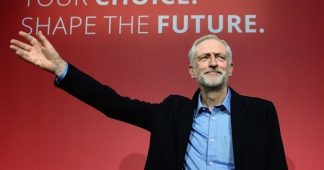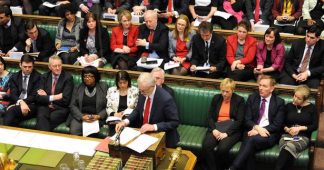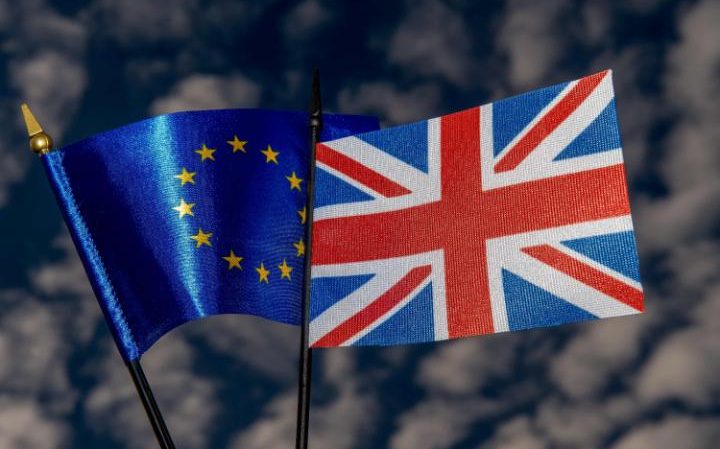By Stathis Habibis
The Irish elections were a slap in the face of the parties applying austerity policies, not a devastating slap, but at least a strong one. Both parties which constituted the outgoing government lost more than 20% of their electoral power. Fine Gael by the leadership of Enda Kenny albeit ranked first, lost more than 250,000 voters, while the Labour Party’ ratings decreased by 12,8%.
The big winner of the Irish elections was Fianna Fáil and its leader Micheál Martin, who grasped the mood of the people and built a campaign on the slogan “An Ireland for all” promising a more fair society. Only a percentage point behind Fine Gael, Fianna Fáil managed to regain the confidence of the Irish people, which was lost by far on the 2011 elections. Moreover Sinn Fein and Gerry Adams had a good performance, increased their ratings to 14%, but they did not fulfill their great expectations, especially after the collapse of the Labour Party. Moreover smaller parties such as the “The Anti-Austerity Alliance–People Before Profit”, the “Social Democrats”, the “Green Party” and the “The Independents 4 Change” will be also represented in the Irish Parliament.
We have to underline at this point a very important, not obvious, still working very much “under the surface” factor everywhere. SYRIZA in Greece created an enormous hope worldwide. The way the leadership of the party did not prepare for the battle to come and the way it capitulated without a battle, last July, under US influence, inspite of the strong mandate it received from the Greek people to resist, had an enormous and devastating effect, putting into doubt the capacity of the Left to produce the solution European peoples are looking for. Marine Le Pen was quick to react to Tsipras’ capitulation last July, speaking of betrayal. The message implied is “do not trust the left, come to the far right”
Analyzing the Results
It is no wonder why the Labour Party suffered such a defeat. People believed that the party betrayed them. In 2011 when forming a coalition government with Fine Gael, Labour Party was supposed to be taking part in the government in order to prevent implementing austerity measures. But instead of this they voted for a budget which consisted of an increase in student fees and reductions in child benefits. It was the beginning of the end for the Labour party.
The story that austerity works is starting to fade away. The lies that the troika programme is a painful but necessary one, which will lead people to a better tomorrow, are being revealed. The Irish government in 2011 was not elected to put more burdens on the shoulders of people and to leave the bankers immune. Enda Kenny was not obliged to take hard measures in order to deal with the fiscal problem. He had promised other things to the Irish people, such as changing the deal with the troika and the bank bailout, improving the political system, while cutting taxes and improving the public services. None of these promises ever became a reality. Instead of these unfulfilled promises, the Government sold off in low prices the property of Irish people by the National Asset Management Agency and the Irish Bank Resolution Corporation.
The leader of Fine Gael was misled by his own “success story” and people didn’t believe the slogan “Keep the Recovery Going”, while their standard of living has fallen during the last five years. Enda Kenny’s only concession was to abolish the Universal Social Charge for incomes more than 13,000 €. On the contrary Fianna Fáil and Micheál Martin made a turn to the left and at least in words spoke for more investments in public services.
The day after tomorrow
The strongest scenario after the elections is that Fine Gael will form a minority government with the tolerance of Fianna Fáil. Sinn Fein has ruled out the possibility to take part in a coalition government, while in Fianna Fáil do not want to be charged with the resumption of austerity policies, leaving alone in the opposition Sinn Fein, which in this way can be reinforced, as it will be the dominant political party, fighting against the austerity policies. So we are about to see a reverse repeating of the “Tallaght strategy”, when Alan Dukes the leader of Fine Gael support a minority government by Fianna Fáil, from 1987 until 1989.
A general conclusion
Though slowly European people are starting to oppose austerity policies, still the “Empire of Finance” remains politically and institutionally capable of applying policies which create greater impoverishment, while the bankers remain untouched and politicians are secretly promoting new regulations, of a fundamental importance, as the TTIP agreement, enabling the multinational companies to impose their will on nation-states. The working classes are becoming helpless – while the echo of war is spreading across the world. All the questions and different ways out of the present crisis remain for the time open.
For further information you can visit the following links:











